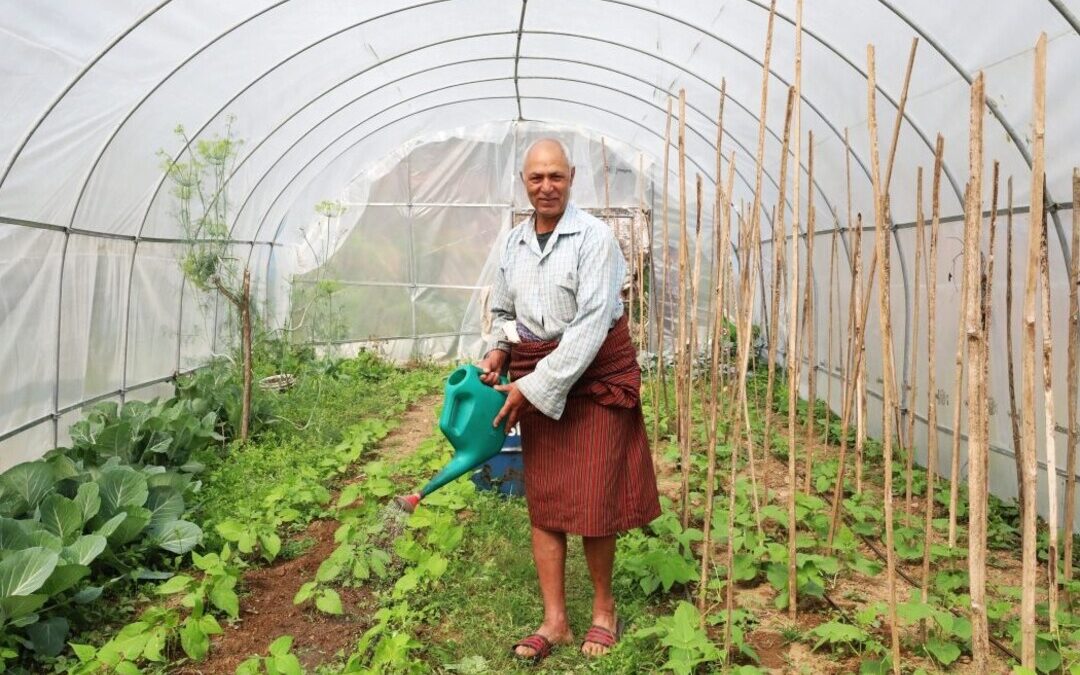Nature-Based Solutions Gain Ground in Global Climate Adaptation Plans: UNDP
Countries are scaling up ecosystem-based solutions to curb climate risks, restore habitats and boost community resilience.
As climate change intensifies, governments are increasingly looking to ecosystems such as forests, wetlands and coastal habitats to protect communities and economies, according to the United Nations Development Programme.
A UNDP report said on Friday that Nature-based solutions, or NbS, are being embedded into national climate strategies, though funding remains far short of what is needed.
Growing Role in National Plans
More than 90 countries have referenced nature-based solutions in their Nationally Determined Contributions under the Paris Agreement, but most still treat them as supplementary measures rather than central strategies.
According to the UN, 44 of 57 countries that submitted National Adaptation Plans by 2024 explicitly included NbS or ecosystem-based adaptation measures.
Momentum is building as over 30 nations integrate approaches such as forest restoration, agroecology and urban greening into their latest climate pledges.
Linking NbS across NAPs, NDCs and biodiversity strategies is seen as a way to boost policy coherence and open access to international climate finance.
Bhutan Prioritizes Green Spaces
Bhutan, one of the few carbon-negative nations, is channeling resources into forests, water and biodiversity protection.
Backed by the Green Climate Fund, the government has developed a master plan to expand green infrastructure in Thimphu, aiming to mitigate floods and landslides while creating more walkable and livable urban areas.
The plan aims to integrate green spaces in the capital city and its surrounding areas, using native vegetation and ecosystem design to manage urban climate risks like flooding and landslides.
It also aims to increase connectivity through walkable, shaded routes, creating a more inclusive and livable city.
Earlier this year, Bhutan secured $20 million from the Global Environment Facility to further expand NbS in Thimphu and Paro.
Senegal Scales Up Climate-Smart Agriculture
Agriculture remains central to Senegal’s climate strategy. With support from the UNDP-Food and Agriculture Organization Scaling up Climate Ambition on Land Use and Agriculture program and Germany’s International Climate Initiative, the country is promoting composting and mulching to strengthen soil health and conserve water.
A government-led initiative with GEF funding aims to restore more than 2 million hectares (20,000 square kilometers) of degraded land through agroforestry, sustainable grazing and assisted natural regeneration.
Mulching is another nature-based solution implemented through the SCALA program in water management for market gardening.
Together with the use of organic fertilizer, mulching improves soil moisture retention while lowering water use, essential in the face of recurring droughts.
Ethiopia Focuses on Watershed Management
In Ethiopia, watershed-based planning is helping communities adapt to water stress and soil erosion.
The SCALA program and GEF funding have supported the rehabilitation of more than 5,600 hectares of degraded land in highland and lowland regions.
Efforts include mulching, irrigation improvements and community-led conservation that boost soil fertility and water retention.
These efforts conserve water, reduce erosion and improve water infiltration, enhance soil quality and ultimately strengthen resilience in some of Ethiopia’s most vulnerable communities.
Cuba Protects Coastal Communities
Cuba’s “Mi Costa” project, a 30-year initiative supported by UNDP and the Green Climate Fund, is restoring mangroves and swamp forests to shield coastal communities from storm surges and erosion.
These ecosystems serve as natural barriers against storm surges, erosion and saline intrusion, protecting freshwater sources and livelihoods.
Specific interventions carried out by the project include mapping degraded zones, developing mangrove rehabilitation protocols and linking ecosystem data with national adaptation strategies.
More than 60 percent of residents in affected provinces are involved in training on ecosystem restoration and early warning systems.
Lao PDR Combines Flood Management and Wetland Protection
In Lao PDR, where floods and droughts regularly disrupt livelihoods, the government is integrating ecosystem restoration into flood management.
Projects funded by the GEF Least Developed Countries Fund use measures such as cascading weirs and retention ponds to slow water flows, reduce erosion and restore wetland ecosystems.
Financing Gap Persists
Despite their benefits, nature-based solutions remain critically underfunded. Global investment reached $200 billion in 2022, just one-third of what is required annually by 2030 to meet climate and biodiversity goals.
Experts say closing the gap will require blended financing from domestic budgets, the private sector and multilateral climate funds.
Mechanisms like Bhutan’s Climate Fund and Cuba’s coastal financing framework demonstrate how valuing ecosystem services can mobilize resources at scale.
Advocates warn that unless NbS are treated as a core element of climate action, countries risk undermining long-term resilience and sustainable development.
Also Read:
China Triples Yellow River Delta Wetlands in 1 Year Using Nature-Based Solutions
Nirmal Menon
Related posts

Subscribe
Error: Contact form not found.


